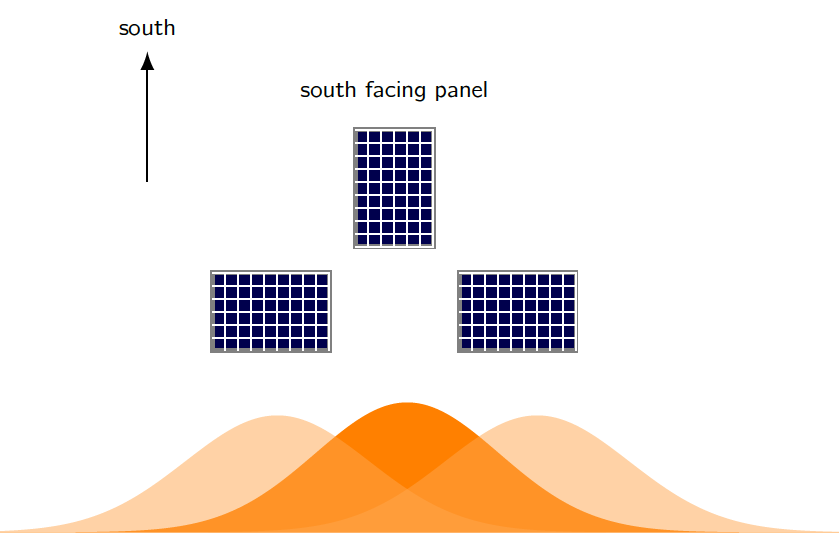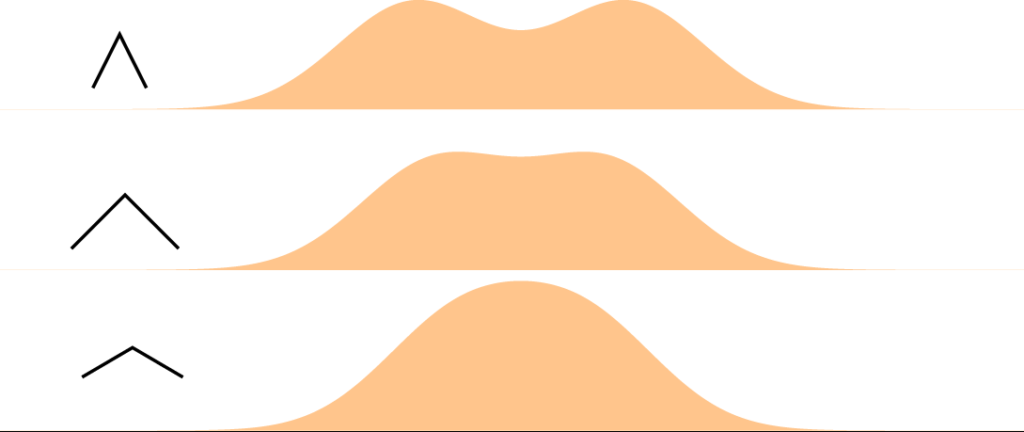In the northern hemisphere the sun travels from east to west in a southernly direction and so aligning solar panels towards south allows them to capture the most amount of sunlight over the course of a day and year than any other direction. However because east-west facing solar panels are pointing in two different directions they provide a unique feature that allows for lower installed and/or levelized costs.
As shown below, solar modules pointing east and west peak before and after solar noon. More energy is produced as the sun rises in the sky, increases in intensity, and points closer in the direction of a solar panel. So for example a five kilowatt solar array facing south at a low tilt can peak around 4.8kW by 1pm, but a 5kW array facing south-east (45 degrees to the east of south) might peak by 1130am and a south west array by 3pm.

east and west solar arrays peak before and after south arrays
The point being is that a single south facing solar array will peak once but an input composed of two solar arrays facing east and west will peak twice or at least make the peak a lot wider than with south facing arrays. Knowing that both solar arrays are not going to peak simultaneously means that we may be able to add more input capacity to the inverter, allowing it to operate closer to its rated capacity and enhancing its efficiency.

combined east-west solar arrays can improve the capacity factor of a solar pv system because they stretch the peak ofproduction
The design advantage of east-west facing solar arrays
The outputs of east and west solar arrays allow for a more stable power output. The higher the tilts and the further from south the more bipolar their total daily output becomes. Flatter solar panels peak closer together because their direction is closer to the sun’s travel path.

solar production of east and west facing solar arrays with different tilts
Feel free to contact us to learn more about the potential of your east or west facing roofs.

